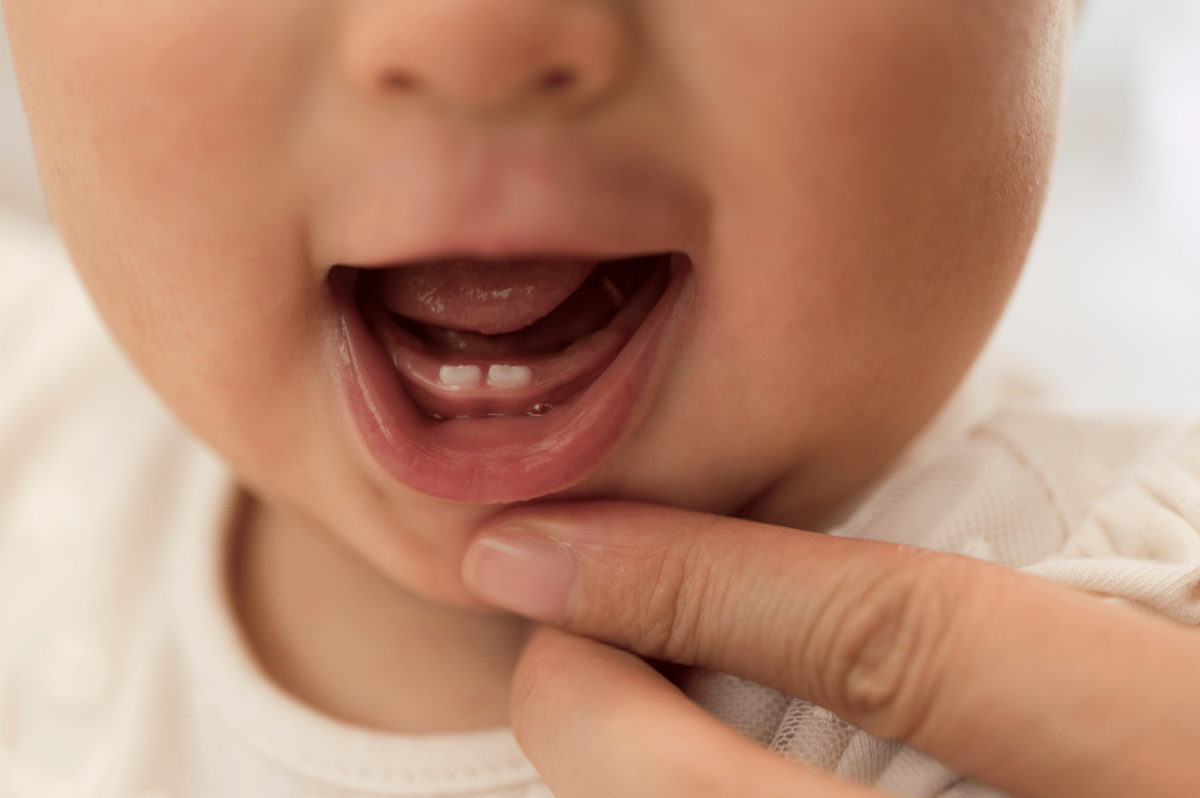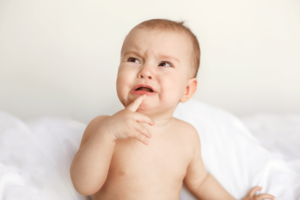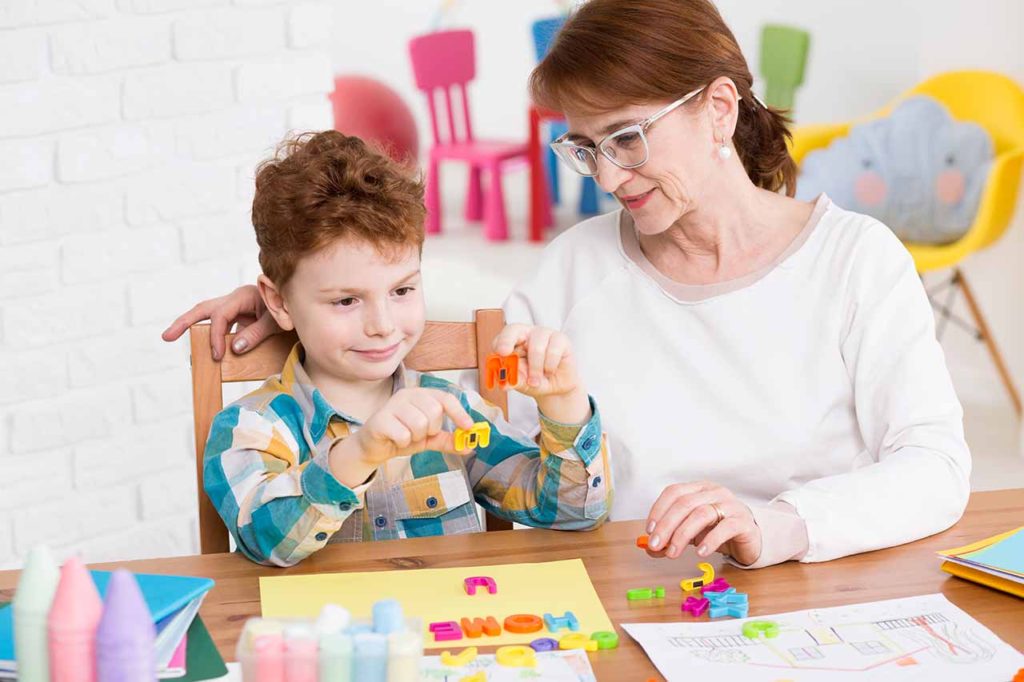Oral Health: Brushing a baby’s teeth
There’s a huge variation in when babies start teething. Some babies are born with teeth, whilst others will not have a tooth cut through the gums until after their first birthday. Around about 6 months is the typical time but there is a very large range of normal! With this in mind, you may wonder when it’s best to start cleaning a baby’s teeth, what you should use and how you should do it. This article aims to offer some pointers on those questions.
Cleaning baby’s mouth
Some countries’ paediatric dentistry advice includes cleaning babies’ mouths before they even have teeth. If this is the case where you are then go ahead and use a clean washcloth, or piece of gauze, with water to gently wipe around a baby’s gums and tongue once a day. Some paediatric dentists recommend doing this before bedtime, whilst others say that timing is not as important because young babies wake frequently to feed at night anyway. In any case, the idea here is to help prevent oral health issues like thrush and mouth ulcers (or ‘canker sores’) by keeping the mouth a little cleaner. It may also get babies used to the idea of an adult touching their mouths and gums so it’s less of a drama when it comes to brushing!
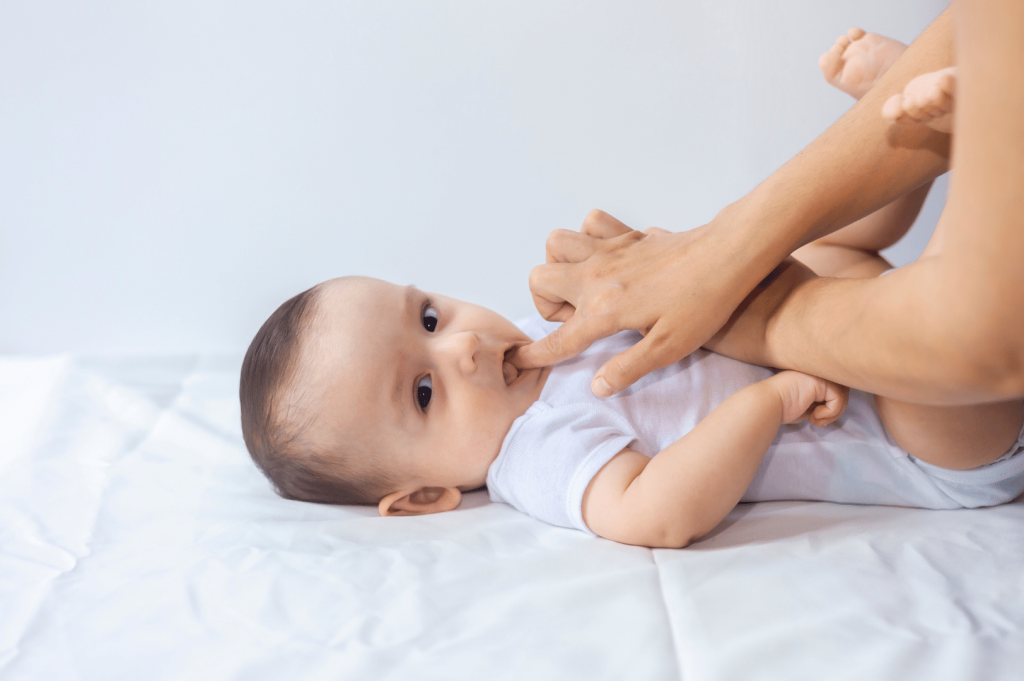
Time for a brush
The usual advice is to brush baby teeth as soon as they appear, and there’s a huge range of different baby toothbrushes on the market. Look for something that’s small enough to fit easily into a baby’s mouth with soft bristles so they don’t injure or upset the baby. Most brushes have a recommended age range on them so this will help you to select an appropriate brush.
Fluoride or no fluoride
Fluoride is a divisive issue. It is a naturally occurring mineral which has been found to help prevent tooth decay. For this reason, some countries or local areas within countries add fluoride to their drinking water to help prevent tooth decay in the general population. Other areas do not add fluoride to their drinking water. When you are considering whether to use fluoride toothpaste or what strength of fluoride to use, it will be important to know whether there is fluoride added to your normal drinking water. If no fluoride is added to your water, dentists recommend that babies and children use regular family toothpaste, if there is fluoride in the water then differing amounts of fluoride in toothpaste are recommended for different age groups. It’s best to check these recommendations with the child’s dentist.
Some families also prefer to avoid fluoride in toothpaste because they are worried that too much fluoride may be toxic to the body, or they may be concerned about dental fluorosis which is where tooth enamel can become discoloured due to excessive use of fluoride.

How to brush a baby’s teeth
As soon as a baby has their first tooth you can brush their teeth using an age-appropriate toothbrush and a tiny smear of toothpaste. The most important thing in brushing a baby’s teeth is habit building, so you shouldn’t worry too much if they won’t let you brush a lot. It’s more important to do a small amount each day, and have the baby be happy with you doing this than to fight them to do a really thorough brushing and make toothbrushing time into a recurring battle.
Some babies love to have their teeth brushed whereas others will fight you the whole way! Just keep trying. You can make it into a game just like you might with spoon-feeding, saying “here comes an aeroplane!”.
You can set a good example for a baby by brushing your own teeth in front of them, or allowing them to play with their toothbrush whilst you brush your own teeth. The easiest way to brush a baby’s teeth is to sit them on your lap facing outwards and rest their head on your chest, from here you can get a good angle to brush their teeth.
You should brush the teeth in small circles, covering all the surfaces of the teeth, becoming more thorough with your brushing as children get older and allow it. Eventually, you will aim to brush for 2 minutes, twice a day.
Do not rinse a baby’s mouth with water once you’ve finished brushing their teeth as this will wash away any fluoride or protective minerals in the paste you are using which are more effective when allowed to sit on the teeth.
You should carry on helping children brush their teeth until they can do it effectively themselves, which is usually at least age 7.
The importance of toothbrushing
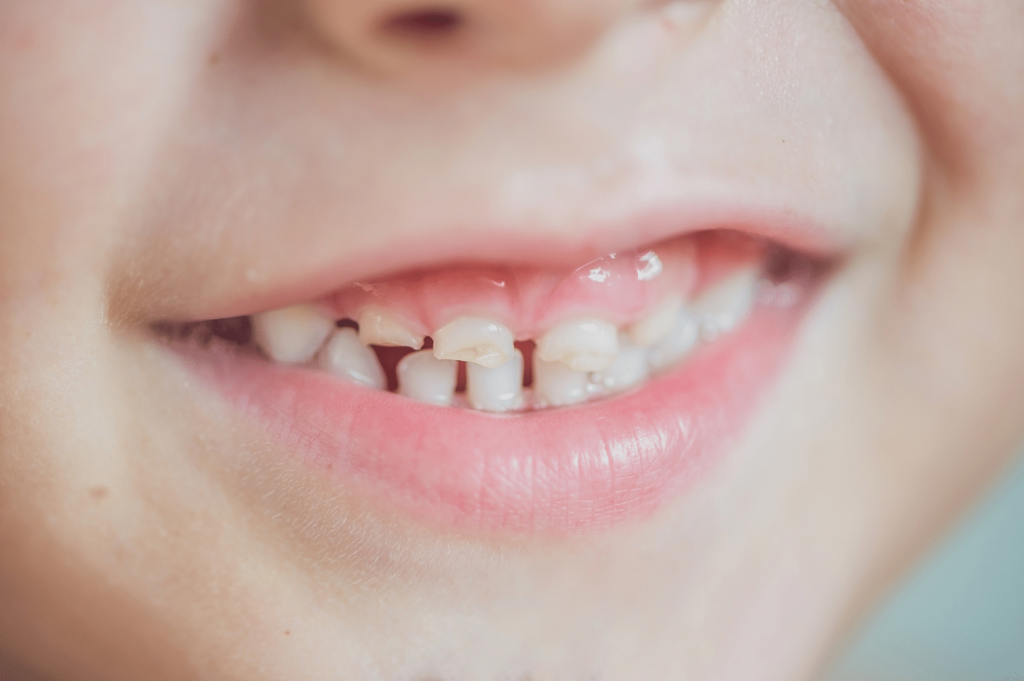
Cavities or ‘dental caries’ are reaching record levels amongst young children in most developed countries. This is largely due to a diet with higher levels of acids and sugars from things like fruits, sauces and sugary treats, but alongside changing dietary habits, tooth brushing is an effective tool in preventing these issues.
Cavities are not only unsightly, but painful, and can set children up for a lifetime of oral health issues. Whilst baby teeth are replaced with adult teeth, cavities in baby teeth can cause issues with adult teeth spacing or even cause infections that impact the adult teeth laying underneath.
Needing invasive dental treatment at an early age is also likely to set children up with a fear of the dentist, which means they are less likely to undergo regular visits as they get older, meaning that less preventative treatment is given, meaning they are more likely to get cavities again, requiring more treatment and so it becomes a cycle. It’s best just to start as you mean to go on and make tooth brushing a regular part of the routine.

